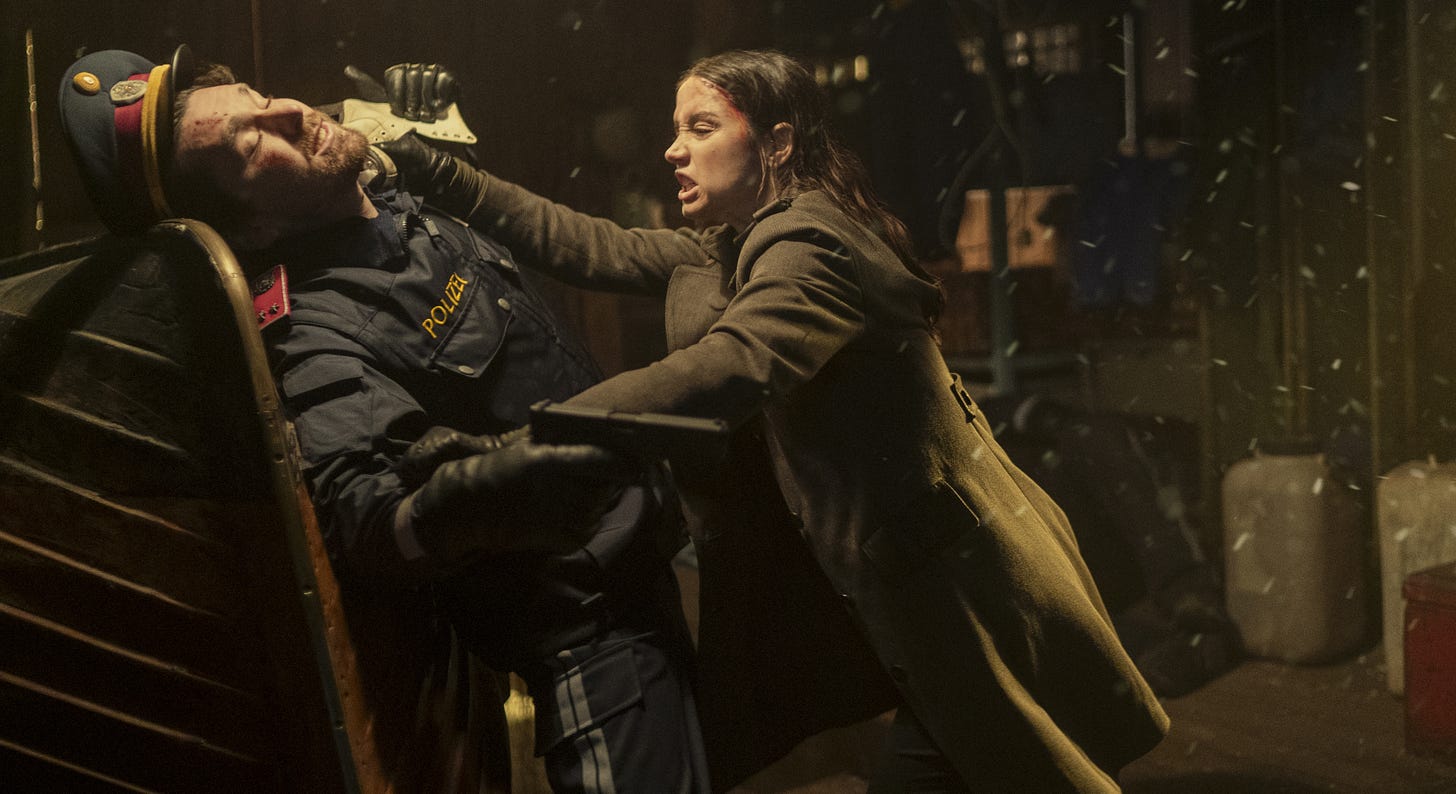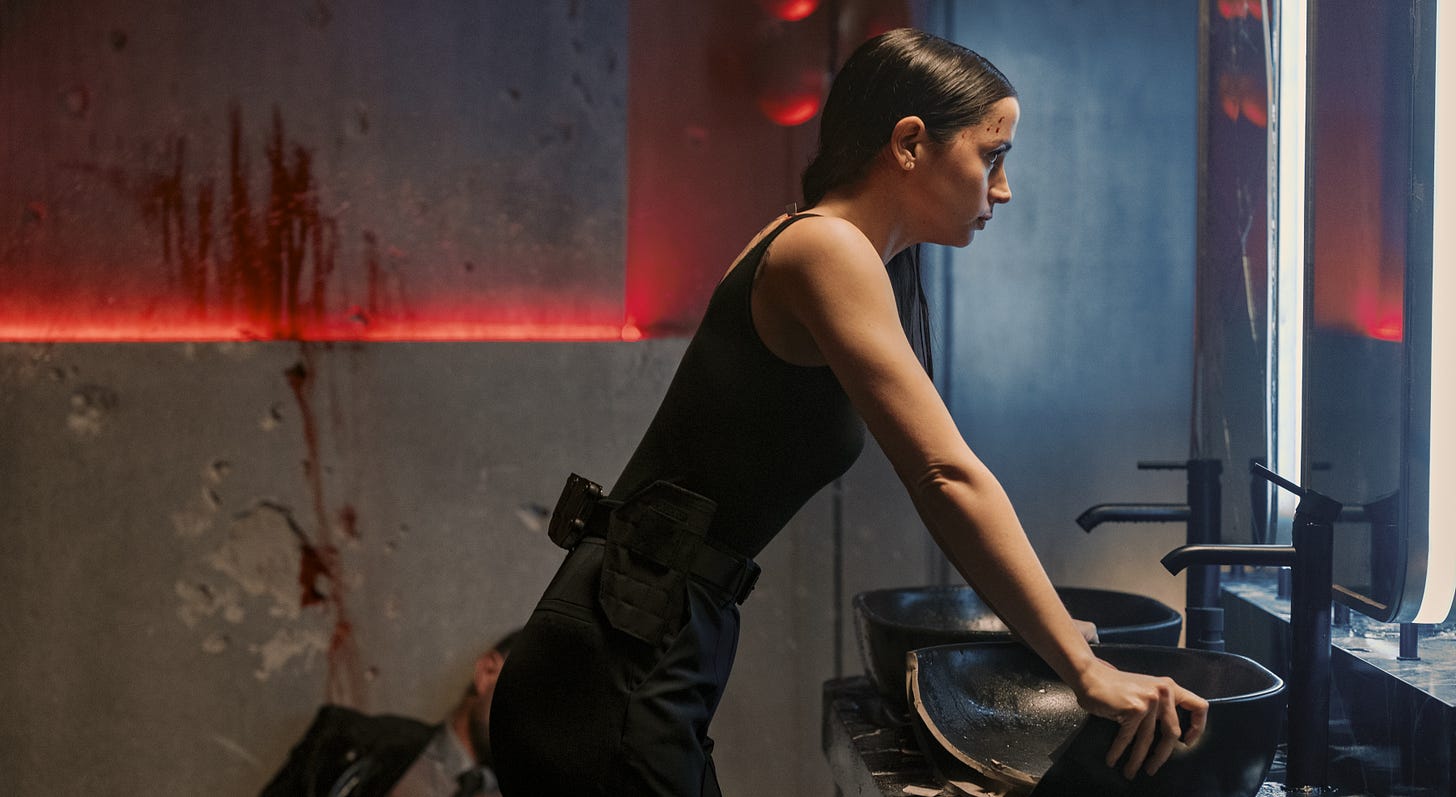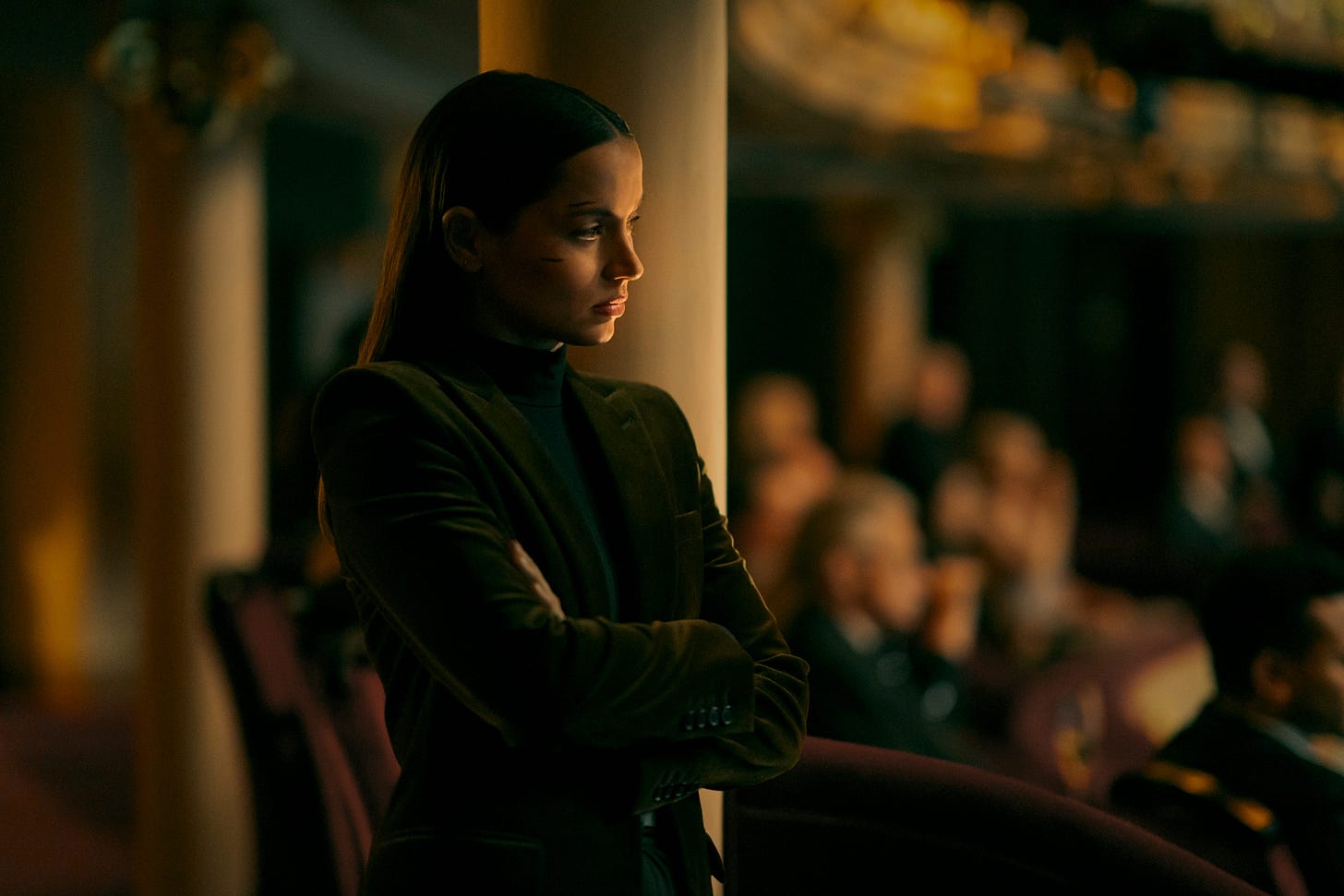Even in establishing themselves as some of the most premier action outings currently on record, to their credit, the John Wick films have never been all that interested in punching above their weight.
Yes, while the pulpy worldbuilding, the at-times campy gravitas afforded by way of the performances or the slick packaging overall each work in the franchise’s favour, the series has always had a keen handle on the best of its particular rhythms: this being, namely, the high-octane, tightly-choreographed and expertly put forward action set-pieces.
To be clear, that isn’t to sell those other, as important elements short, necessarily but it is understood, reel-to-reel, where the main appeal lies - this, something Ballerina, Wick’s first feature spin-off and fifth film total, delivers on.
Born from promise but living instead, a troubled production, Ballerina, which released earlier this month is not a project free of missteps but it stacks strongly against its predecessors all the same: while, as well, charting a potential fresh path forward for the franchise at large.
After her father (David Castañeda) is murdered by a cabal of mysterious killers, young Eve Macarro (Ana de Armas) is taken in by the Ruska Roma, where, under the stern but watchful eye of The Director (Anjelica Huston), she is raised to become an expert assassin all her own.
But when she uncovers a lead that could point her towards those same killers, against Ruska orders, Eve insists on following down the path of vengeance, wherever it leads: from the traditional confines of the Wick underworld to the mountains of Austria, where dark secrets lurk.
Forced to confront both her past and her future, as she battles against impossible odds, Eve comes to learn that, in this life she has chosen, there is only one way out… for most.
Chronologically set between Parabellum and Chapter 4 of the previously released Wick films, narratively, Ballerina, undeniably, feels the strain of both wanting to stand on its own, as a purported spin-off but it is deeply indebted, by the inherent nature of its design, to what came before.
Though when it works, it works.
Be it the fantastic costuming, blending fashion and function, that comic book-esque lore or the brief spot work of Winston (Ian McShane) and Charon (the late Lance Reddick, in his final film role) both, who help to send Eve on her way as she sets out on her quest.
And yes, present too is John Wick (Keanu Reeves), who, with his presence wholesale betrayed by the marketing, has business of his own to conduct and comes to cross paths with Eve as he does so.
On one hand, it is true, Reeves’ raw visibility, which moves him firmly beyond a blink-and-you-miss-it cameo into supporting territory, can very much come across as the film having a lack of confidence in the material, as presented. Not allowing Eve, as a character, to properly stretch her legs during a key juncture of the narrative, knowing Wick is waiting in the wings.
But conversely, such familiarity, in the bigger swings, it does come to land in Ballerina’s favour.
While franchise steward Chad Stahelski has confirmed Wick 5 is in active development, he also acknowledged, in an interview with The Hollywood Reporter that ran earlier this month, that, not only have he and his team, given how Chapter 4 ended, yet to settle on a story they’re truly satisfied with but that the film itself is no sure thing.
A potential reorientation of the Wick films then, around De Armas and the still-in-development Donnie Yen project, it isn’t entirely out of left field, the overarching connective tissue, binding but not unilateral.
De Armas, effortlessly picking up that prestige-action mantle that Reeves has championed now, for well over a decade.
While many-a-film and too many-a-performer have been lost to the hypothetical grinder of discourse over the years, De Armas stepping into the Wick franchise spotlight grants an assured fit.
Following her film-stealing turn in No Time to Die, she has taken on a handful of action-oriented roles in the years since but Ballerina is, by far and away, her strongest showcase yet.
Deeply traumatized by her childhood, Eve accepts the Ruska Roma’s lessons with a cool determination but comes to disregard the finer points of their code entirely, driven to exact her revenge, for better or worse… though she doesn’t, can’t, hide from the fact that her humanity has not been lost, either.
It is an interesting reversal of sorts on the established Wick formula: while Wick was unrelenting yes, it was made very clear that, forced out of retirement, he only ever had one foot in the pool, Eve, instead, dives in head-first, relatively inexperienced though she may be. De Armas may not have many opportunities for her signature charisma to shine through - a serious mission she is on, in a serious if hyper-stylized world - but instead, it is the embodiment of the character’s physicality where she takes the (literal) stage, in the action through-line that never slows down.
And even with the production hurdles Ballerina was forced to clear - only Shay Hatten being credited on the writing side or a continuing back-and-forth, between the studio and credited director Len Wisemen on the extent of Stahelski’s involvement during reshoots - it makes every set-piece count.
The practicality, the universal stunt work, the longtakes, alongside the work of cinematographer Romain Lacourbas or the three-person editing team (Jason Ballantine, Julian Clarke, Nicholas Lundgren).
Nothing feels wasted.
Eve, while naturally a markswoman with few equals, often finds herself physically overpowered in a more tangible way (again, in Wick comparison), forcing her, as her training suggests, to utilize strength, clear thinking under fire, in a different way. Be it long-range tactics, utilizing the environment to her advantage or more underhanded strategy. From treating grenades as lead-weighted baseballs or in what is one of the film’s few laugh-out-loud moments, putting dinner plates on the offensive.
It is violent, it is visceral but it is, for the most part, non-stop engaging (though with the climatic duel noticeably struggling with both poor staging and an elongated sense of pacing).
Ultimately however, Ballerina does exactly what it sets out to do.
Even though its storytelling chops, for a tentpole action film, are telegraphed pretty hard and don’t carry much weight, they do just enough to both drum up investment and keep it over the film’s two hours, De Armas proves, without doubt, wherever this franchise may end up that she is a worthy successor to lead it, either overall or within a Ballerina sub-series and the action sequences reconfirm that the Wick team remain some of the industry’s top dogs.
If and when Eve Macarro returns, it will be with her origin story spoken for - and wherever she goes next, it is to know that her particular brand of chaos won’t be far behind.








